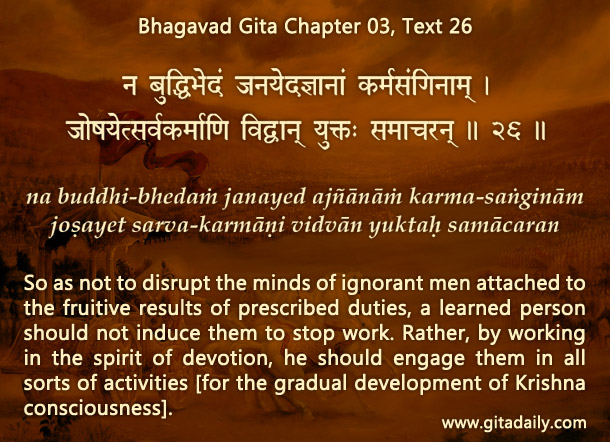Why compassion matters more than erudition – Suppose we discuss spirituality with a loved one whose conceptions differ from what we have learnt in sacred texts like the Bhagavad-gita.
We may feel righteously justified to show them how their conceptions are wrong. And if we are scholarly enough to know some scripture, we may even quote several verses to establish our point. After our delivery, we may feel that we deserve resounding applause.
Yet we may find them unconvinced, unimpressed, or even unreceptive. What went wrong? We were so busy delighting in our erudition that we had no time for compassion. Erudition increases the size of the head; compassion increases the size of the heart. Erudition can be valuable, but only when used compassionately.
A compassionate heart understands that everyone is at their particular place in their multi-life journey of spiritual evolution; they have arrived at their conceptions because of the experiences they have had; and their conceptions need to grow from where they are, not from where we are. Pertinently, the Bhagavad-gita (03.26) discourages disturbing others’ minds, even if they are attached and ignorant; instead, it encourages providing them ways to evolve from where they are.
Understanding where people are, instead of exhibiting where we are, requires hard work and humility. Hard work to hear others, understand why they think the way they do and determine how we can help them expand their perspective. And humility to acknowledge that we can’t just teach others; we need to learn from them how we can best help them learn. The willingness to embody such hard work and humility is the foundation for compassion.
One-sentence summary:
How many verses we can quote to prove our point may show how big our head is; how much effort we make to understand and expand others’ viewpoint shows how big our heart is.
Think it over:
- Why may our arguments be unpersuasive for others?
- How does a compassionate heart see others?
- What is the foundation of compassion?
***
03.26: So as not to disrupt the minds of ignorant men attached to the fruitive results of prescribed duties, a learned person should not induce them to stop work. Rather, by working in the spirit of devotion, he should engage them in all sorts of activities [for the gradual development of Krishna consciousness].
(Inspired by this podcast with Yogsehavara P)


Compassion nears you to God